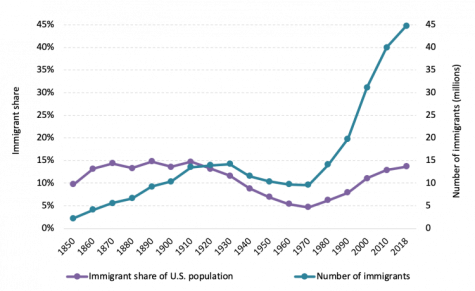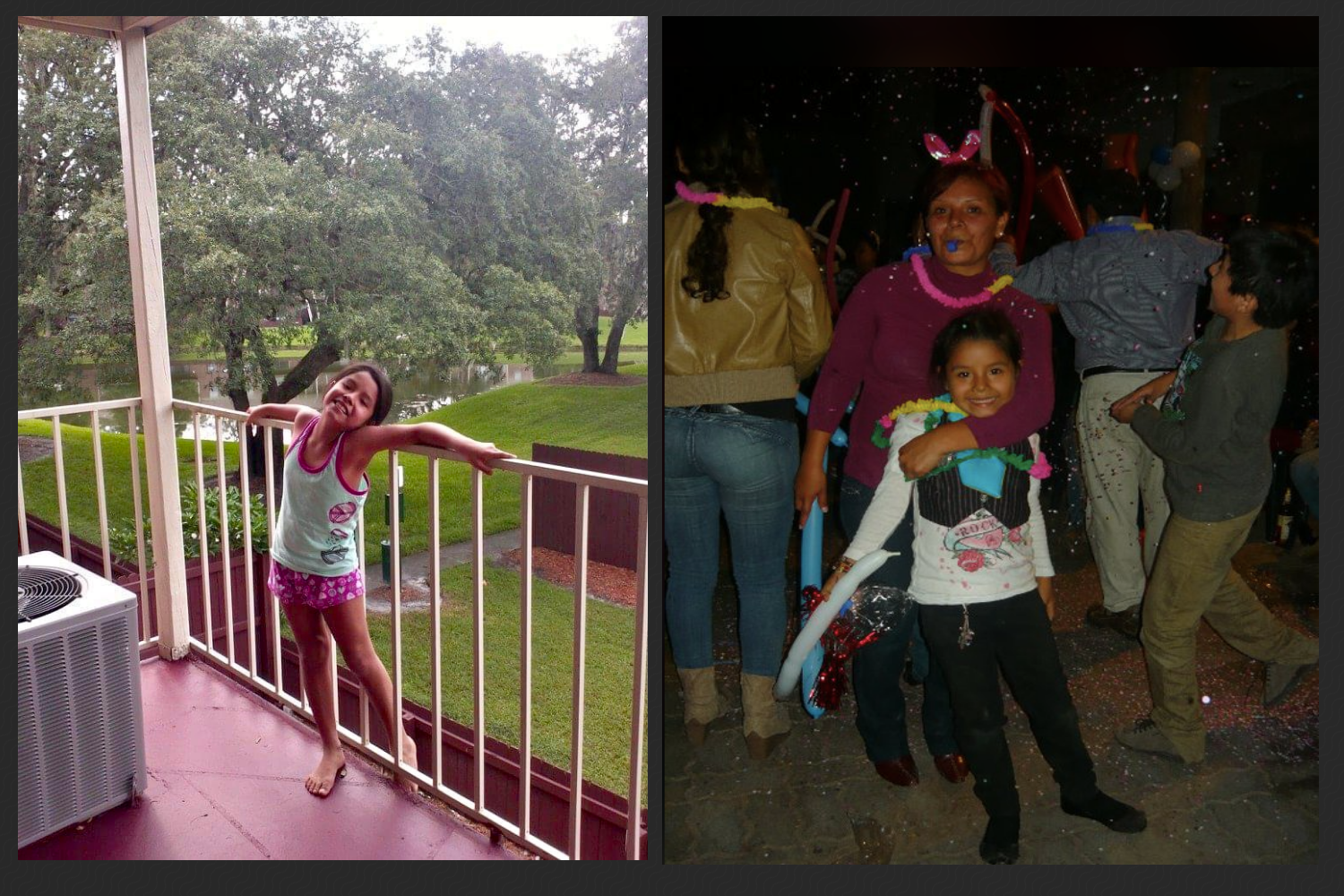What it is Like Being a First-Generation Immigrant
October 9, 2020
On August 1, 2013, I had my very first twinkie.
After the long five-hour flight from Peru, my mom and I finally arrived at the Miami International Airport. Four more hours and we had arrived at our new home, Tampa, Florida. After the initial sadness of leaving everything behind, I was excited. My eight-year-old brain couldn’t comprehend the huge change I was about to experience.

The immigration process for us started when I was barely even born. My dad had come to Tampa when I was born, and it was my family’s goal to ultimately have all of us under one roof. My mom applied for a residency two times and was rejected. When I turned seven, she decided to try her luck once more and months later we received the news that we had been accepted
Unfortunately, that is not the case for many immigrants. Families everywhere, from South America to the Middle East, apply each year to be accepted as residents of this country. The process is lengthy and very costly; it requires much paperwork, many signatures, a lot of money, and a lot of patience. Some people don’t have the means to access these things, or if they are, rejection is a common thing. The denial rate goes up to 50% and we see an increase every year. Sometimes, instead of legally, people are forced to look into other ways of coming here.
My mom and I, however, were lucky enough to reach the “land of opportunity.” We were looking for more. We wanted to escape the worst parts of Peru: the rape and sexual assault and constant armed robberies — common things you would see on the street. My mom hoped that here it would be safer, a place where a kid could grow up and shine.
Many people leave their countries for the dangers they face. A small number of immigrants, about 100,000 people, have been taken as refugees and escaped persecution, most are from Middle Eastern countries. Immigrants from China also come to escape their communist regime as well as the schooling system which is rigorous and not at all flexible. From South America and Central America, they come to escape the ever-growing sexual assault statistics. 59% of women have reported being assaulted once they reached the age of 15. They look to escape gang violence and the crime rate which ranges from 30%+ average in Latin American countries. The violence, lack of opportunity, and oppression lead them away from their home countries. The United States offers innovative education, a safer environment, and opportunities that are a stark difference from what they know.

Parents leave the comfortableness of their own homes, places that they know so well, to come to the United States.
It is their dream to one day watch their kid walk across that stage and receive their diploma.
It was difficult coming here. I didn’t know much English. I missed my family every night and I didn’t have friends since I came the summer before third grade. Peru was a loud place; you could easily hear the TV’s blaring and people shouting; it was filled with so much noise. The only sound I heard my first night was quiet.
I became my parent’s translator at eight years old because I picked up the language pretty quickly. This American life was so much different and hectic, and it was hard for all of us to adjust. I was sometimes made fun of at school for my “different” food in third grade. When everyone else had school lunch or PB & J’s, my mom packed me tupperware with “arroz con pollo.”
Sometimes I wasn’t able to say the things I was thinking correctly, and it was frustrating when people didn’t understand.
Something I will never forget was my first argument with a girl in my third-grade classroom. She told me they would deport me because I wasn’t a citizen. I was scared, but no one was as scared as my mother.
Even now as a citizen, there is still always a fear of the system, “don’t get in trouble”, “don’t post anything wrong on social media,” and “be careful with what you say.” Those are common thoughts and things instilled in me growing up.
My biggest motivation will always be to make my parents proud, to make sure that all the sacrifices my mom made and still does to this day, will pay off. I think that this is a common burden among the kids of immigrants everywhere. It’s a weight of responsibility that always lingers. As my mom always says, “Get the best grades, do the best in school, you can have fun later.”
I’m sure that many can agree with me when I say that being a first-generation is a hard road to navigate, especially since there is no blueprint to one’s identity. Everyone’s journey of self-discovery is different and when you grow up in two very different cultures, you can see yourself not quite fitting in.
But I wouldn’t change it for anything. It has made a lot more aware, as I’m able to experience both sides equally. I grew up with a rich culture, and a lot of loving family in Peru, but I also saw the struggle of surviving week to week, and what it was like to live in fear. Seeing this has made me appreciate my life more. I live here, safely, in a world where I know I can make be anything.
If there is anything I want you to take away from this, it’s to be grateful to be where you are. In the United States, we are currently living in a time of division, always remember that each of us here is lucky.
We are lucky because we have the freedom to protest and to speak our minds. We are free to express ourselves. We are surrounded by an accepting environment. We have laws that protect our weakest and hold people accountable. This is the “American Dream.”
I have the right to freedom and happiness, and for that, I’m forever grateful.


Mrs Jaime Meyer • Oct 16, 2020 at 9:29 am
What a wonderful article written by an equally wonderful young woman. Bless you.